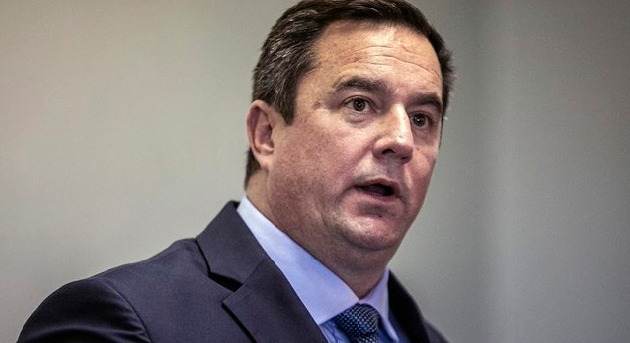- DA leader John Steenhuisen has questioned the MK party’s portrayal of uMkhonto weSizwe (MK), urging a more accurate interpretation of its history.
- Steenhuisen emphasized that MK’s armed struggle was a response to oppression, not merely militancy, criticizing what he sees as an oversimplified narrative.
- Analysts suggest Steenhuisen’s comments may spark renewed debate on ANC’s legacy and historical narratives in South Africa.
Democratic Alliance (DA) leader John Steenhuisen recently ignited controversy by challenging the MK party’s understanding of uMkhonto weSizwe (MK), the African National Congress’s (ANC) former armed wing. Speaking on the importance of preserving South Africa’s liberation history, Steenhuisen criticized the MK party for allegedly misrepresenting MK’s legacy and romanticizing aspects of its armed struggle without acknowledging its complex role in the fight against apartheid.
Steenhuisen argued that uMkhonto weSizwe was more than just a militant group, describing it as a necessary response to the systemic oppression faced during apartheid. “The real uMkhonto weSizwe was not merely a militant group; it was a response to systemic oppression and violence,” he stated. He called on MK members to reflect on their history with nuance, highlighting the need to recognize both the achievements and the hardships associated with South Africa’s liberation struggle.
These remarks come amidst rising political tensions and ongoing discussions around the country’s process of reconciliation and memory. Steenhuisen’s statements reflect a broader DA agenda that advocates for historical accountability and a critical approach to post-apartheid South Africa’s political narratives. Analysts predict that his remarks may ignite further debate, especially among younger South Africans, who are increasingly interested in examining historical narratives about the ANC and its legacy.
With the MK party yet to respond formally, Steenhuisen’s challenge has stirred anticipation over how the conversation will affect inter-party relations and public perceptions. His comments underscore the continuing dialogue around history, identity, and political legitimacy in South Africa, which remains crucial in the ongoing journey toward understanding and reconciling the country’s past.






















